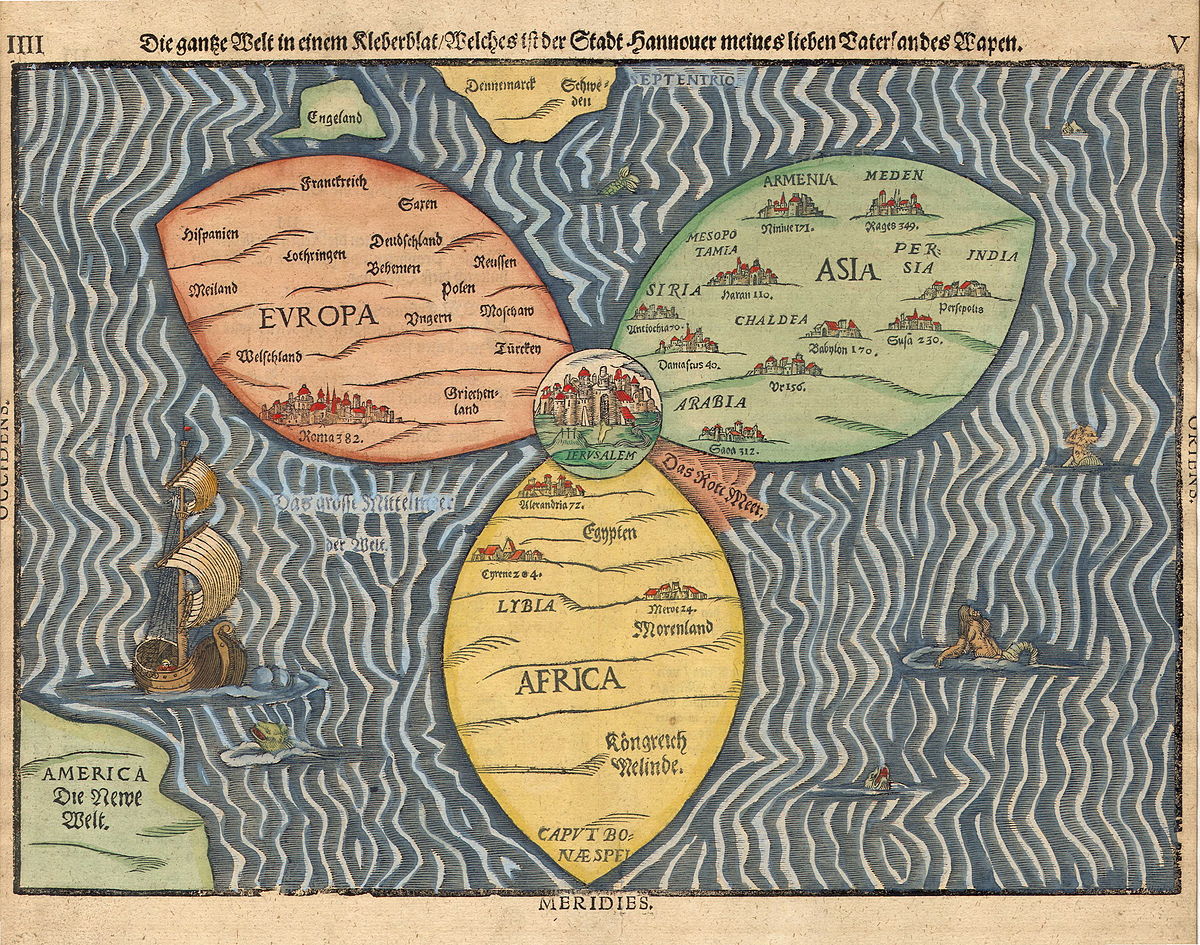
I never saw you, my city, but you were for me,
Reality seen in dream....
You stood, Jerusalem, so close to my heart
Where do you, wonderful city, start?
Later I know you from old collecting stamps
For the funds to help the pious pilgrims in Jerusalem,
Three trees weeping by the Wailing Wall
Weeping like my birch trees here
That sway in the autumn-wind by the cross-roads
Is nothing more left, father dear,
Than this wall here,
And the trees that grow out of it?
Nothing more, my child, nothing more at all.
Yet when a book came
From Jerusalem
Because we stinted ourselves bread
And sent a few coins to the fund
For the pious pilgrims living in Jerusalem,
And he saw the words printed on
the title page-
"Jerusalem, the holy city."
His shrunken face with the bones showing through
Lighted up with an astonishing light,
And his old, dim eyes shone bright:
"Come here, my son, look at this,
A new book from Jerusalem,
come here and these pages kiss!"
- Elie Wiesel
(2) The LORD is great and much acclaimed
in the city of our God,
His holy mountain— (3) fair-crested, joy of all the earth,
Mount Zion, summit of Zaphon,
city of the great king. (4) Through its citadels, God has made Himself known as a haven. (5) See, the kings joined forces;
they advanced together. (6) At the mere sight of it they were stunned,
they were terrified, they panicked; (7) they were seized there with a trembling,
like a woman in the throes of labor, (8) as the Tarshish fleet was wrecked
in an easterly gale. (9) The likes of what we heard we have now witnessed
in the city of the LORD of hosts,
in the city of our God—
may God preserve it forever! Selah.
(10) In Your temple, God,
we meditate upon Your faithful care. (11) The praise of You, God, like Your name,
reaches to the ends of the earth;
Your right hand is filled with beneficence. (12) Let Mount Zion rejoice!
Let the towns of Judah exult,
because of Your judgments.
(13) Walk around Zion,
circle it;
count its towers, (14) take note of its ramparts;
go through-d its citadels,
that you may recount it to a future age. (15) For God—He is our God forever;
He will lead us evermore.-d
The word צפוֹן in Hebrew means north, an odd distinction for the location of Mt. Zion and Jerusalem. But perhaps there is some deeper meaning to be found in the root of the word. צפוּן in Hebrew means "hidden," just as it is the title of the section of passover where we look for the afikomen, which is hidden by parents for children to find. To this end, the Psalm may be suggesting that although we can see the top of Mt. Zion, its true summit lies hidden from our view, but reaches far into the heavens above.
––Josh Franklin
her full potential. So does God do with His children. He may place Himself at a distance and leave us to our own devices. Having been allowed to fall, we can examine what went wrong, how we have failed, thereby progressing toward walking on our own, toward a self-made perfection that God finds so beautiful. Hence: He will lead us eternally-God is always a step away, urging us to follow (Baal Shem Tov).
1. A song of ascents. When the LORD restores Zion’s fortunes, we should be like dreamers.
2. Then will our mouth fill with laughter and our tongue with glad song. Then will they say in the nations: “Great things has the LORD done with these.”
3. Great things has the LORD done with us. We shall rejoice.
4. Restore, O LORD, our fortunes like freshets in the Negeb.
5 They who sow in tears in glad song will reap.
6. He walks along and weeps, the bearer of the seed-bag. He will surely come in with glad song bearing his sheaves.
Alter, Robert. The Book of Psalms: A Translation with Commentary . W. W. Norton & Company. Kindle Edition.
––Paul Tillich, The Shaking of the Foundations, 151
In our great joy during the redemption, we will look back at the travails of exile as no more than a fleeting dream (this is the interpretation of my father Z''L)
Alter, Robert. The Book of Psalms: A Translation with Commentary . W. W. Norton & Company. Kindle Edition.
א עַל־נַהֲרוֹת בָּבֶל ,By the rivers of Babylon
שָׁם יָשַׁבְנוּ גַּם־בָּכִינוּ ,there we sat , oh we wept
בְּזָכְרֵנוּ אֶת־צִיּוֹן: as we remembered Zion
ב עַל־עֲרָבִים בְּתוֹכָהּ ,Upon the willows there
תָּלִינוּ כִּנֹּרוֹתֵינוּ: .we hung our lyres
ג כִּי שָׁם שְׁאֵלוּנוּ שׁוֹבֵינוּ For there our captors asked us for
דִּבְרֵי־שִׁיר ,words of song
וְתוֹלָלֵינוּ שִׂמְחָה :our plunderers for rejoicing saying
שִׁירוּ לָנוּ מִשִּׁיר צִיּוֹן: .Sing a song for us from Zion
ד אֵיךְ נָשִׁיר How can we sing
אֶת־שִׁיר יְהֹוָה songs of YHWH
עַל אַדְמַת נֵכָר: ?on foreign soil
ה אִם־אֶשְׁכָּחֵךְ יְרוּשָׁלָם If I forget you Jerusalem
תִּשְׁכַּח יְמִינִי: .Let my right hand wither
ו תִּדְבַּק־לְשׁוֹנִי לְחִכִּי Let my tongue stick to my palate
אִם־לֹא אֶזְכְּרֵכִי ,if I do not recall you
אִם־לֹא אַעֲלֶה אֶת־יְרוּשָׁלַם if I do not elevate Jerusalem
עַל רֹאשׁ שִׂמְחָתִי: .to the forefront of my joy
ז זְכֹר יְהֹוָה Recall YHWH
לִבְנֵי אֱדוֹם the Edomites
אֵת יוֹם יְרוּשָׁלָם .on the day of Jerusalem
הָאֹמְרִים עָרוּ | עָרוּ !How they said: strip it! strip it
עַד הַיְסוֹד בָּהּ: .to its foundation
ח בַּת־בָּבֶל הַשְּׁדוּדָה .Daughter of Babylon, you destroyer
אַשְׁרֵי שֶׁיְשַׁלֶּם־לָךְ אֶת־גְּמוּלֵךְ Blessed is he that pays you back in retribution
שֶׁגָּמַלְתְּ לָנוּ: .for what you have inflicted on us
ט אַשְׁרֵי | שֶׁיֹּאחֵז וְנִפֵּץ Blessed is he that seizes and smashes
אֶת־עֹלָלַיִךְ אֶל־הַסָּלַע: .your little ones against the rock
Translation by Josh Franklin
––Josh Franklin
––Josh Franklin




